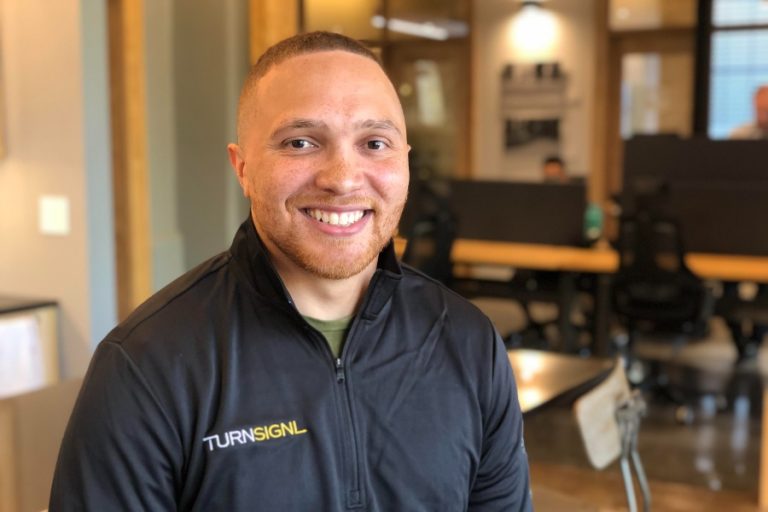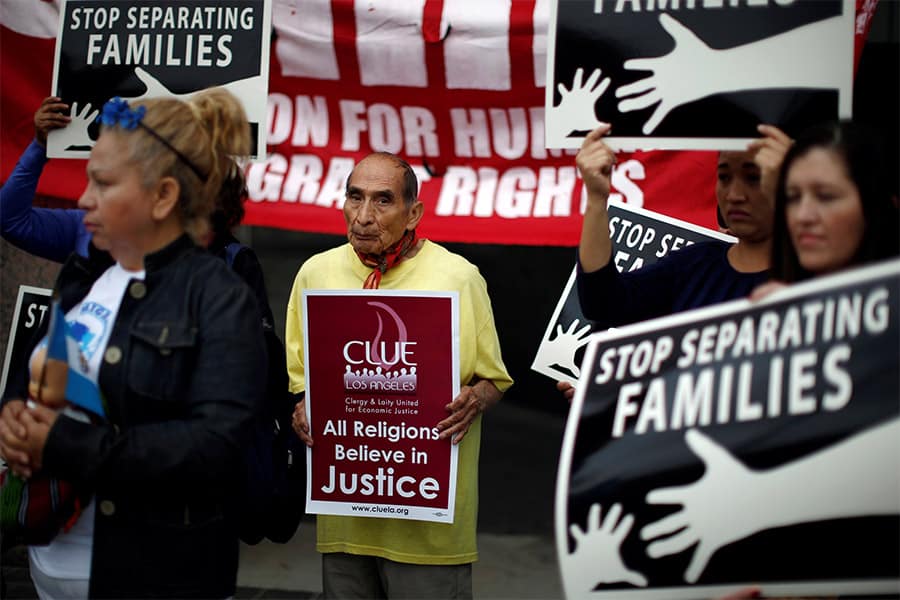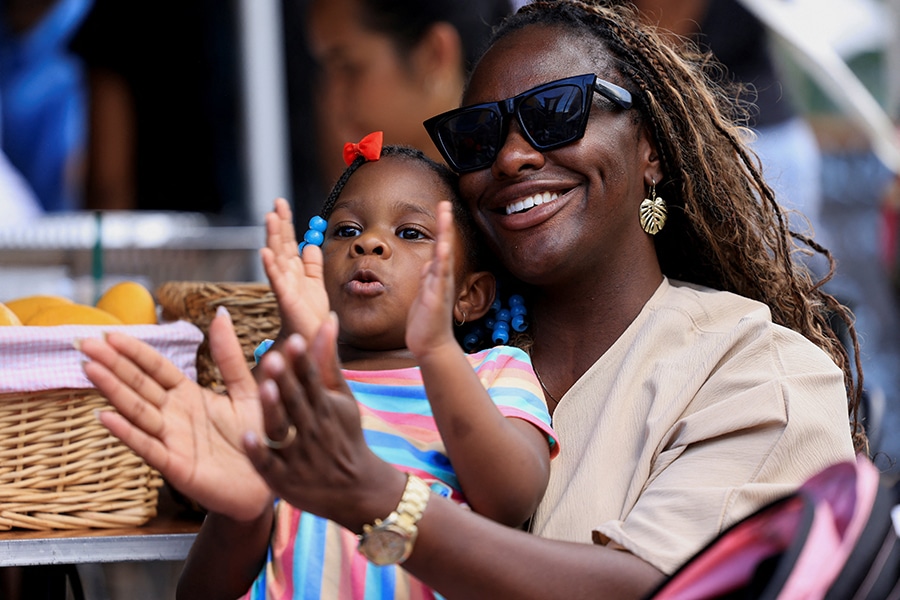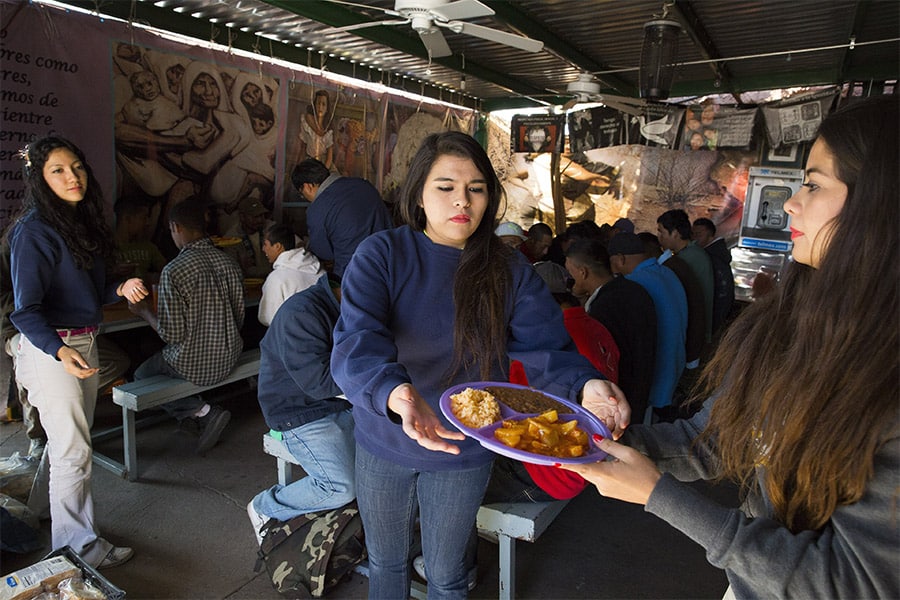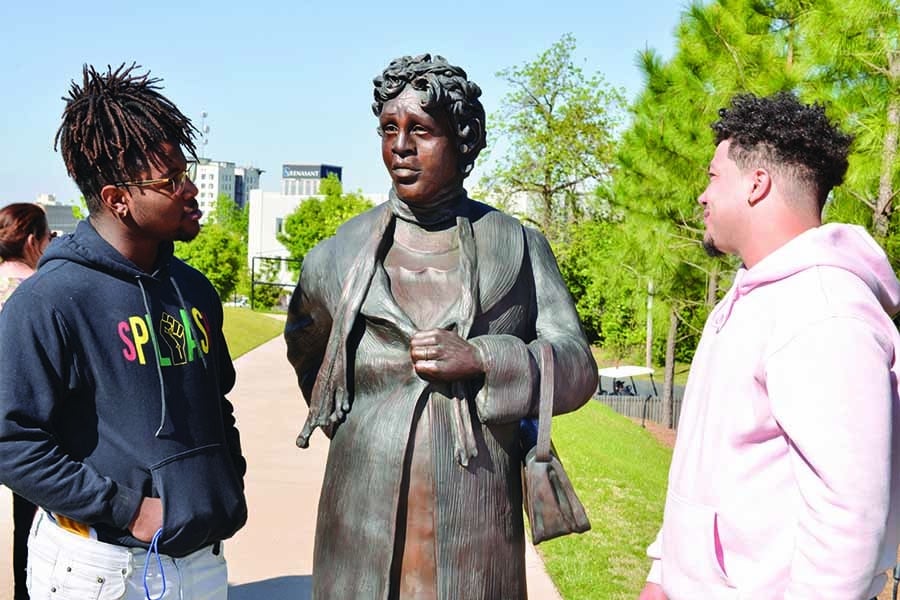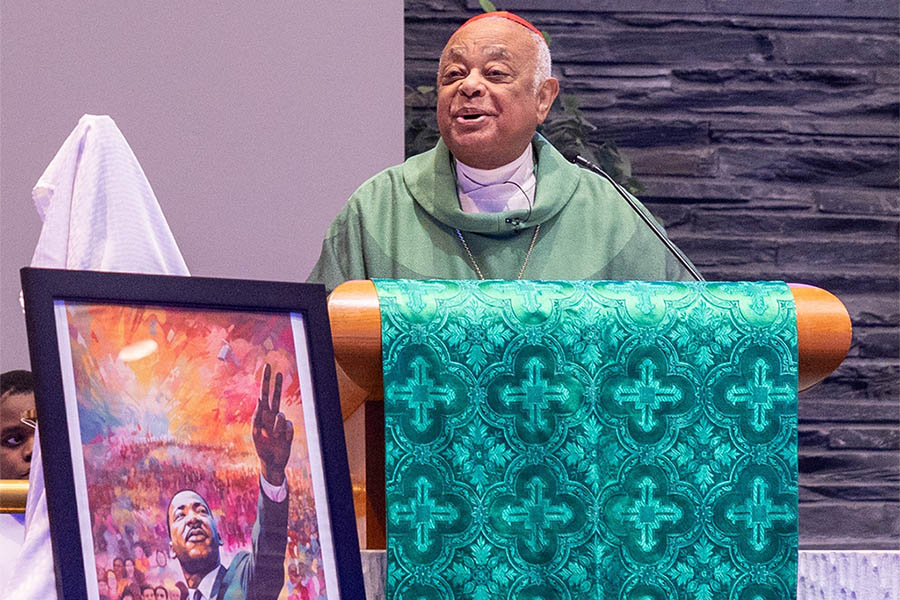MINNEAPOLIS (CNS) — Pulled over by police, nervous and unsure of what to do? There’s an app for that, thanks to the work of a Catholic school alumnus and his partners.
They have launched TurnSignl, a web application designed to connect someone who’s been pulled over by police while driving, or who’s gotten in a car accident, with an attorney who can advise parties of their rights and — importantly — is trained to defuse the situation if things get tense.
Jazz Hampton, TurnSignl’s CEO and general counsel, attended Catholic schools from sixth grade through law school, and he sees values from that education shaping both his decision to leave a rising career at a national law firm for a start-up, and the difference TurnSignl intends to make.
“I feel like I get all the success in the world if I can help people every day,” said Hampton, 30, whose Catholic education began at Blessed Trinity in Richfield, Minnesota, in the Archdiocese of St. Paul and Minneapolis, and continued nearby at the Academy of Holy Angels where he graduated in 2008.
He went to the University of St. Thomas in St. Paul for his undergraduate degree before entering St. Thomas’ School of Law.
Catholic education, he said, “really instilled in me to think whatever tool I have, whatever gifts I’ve been given by God, whatever opportunities are laid in front of me — how can I use them to help others?”
He’s convinced he can do that with TurnSignl. To use it, drivers download the app to their phone and pay a monthly or yearly subscription. If they’re pulled over or get into an accident, they open the app and press a button to video call an attorney. The phone screen shows the attorney and records the interaction.
The attorney is there to advise drivers of their rights, and he or she is trained by national experts in deescalation.
TurnSignl advises its users to keep phones in dashboard mounts and stick TurnSignl’s decal on their cars’ rear bumpers to signal to officers that they can expect the app will be used.
It’s like having a lawyer sitting in the passenger seat, Hampton told The Catholic Spirit, the archdiocesan newspaper. He and his partners hope it becomes as ubiquitous as Uber.
“I think everyone is uneasy during police interactions,” Hampton said, comparing them to going through airport security. “When I put my bag in the TSA security checking, I know exactly what’s in it, right, but you get a weird feeling in your stomach.”
TurnSignl has become available a year after the police-involved death of George Floyd in Minneapolis, where the first interaction between officers and Floyd happened in Floyd’s SUV, and just weeks following the death in Brooklyn Center, Minnesota, of Daunte Wright, who was shot April 11 by a police officer during a traffic stop.
Recent police-involved shootings of people of color nationwide have led to widespread calls for police reform on federal and local levels, including in Minneapolis, where TurnSignl’s offices are located.
But it was the 2016 shooting death of Philando Castile by a police officer during a traffic stop in the St. Paul suburb of Falcon Heights that prompted Hampton’s two TurnSignl colleagues to begin asking what they could do.
A fortuitous connection with an innovator with shared goals led them to start TurnSignl and recruit Hampton to run it.
“I thought to myself, as a person of color with a special set of skills and knowledge, rather than being sad and just going to the marches and the peaceful protests, what can I do to be part of the solution?” Hampton recalled thinking when offered the job. “I felt like I had a tool that I wasn’t using to its full ability.”
For Hampton and his partners, who are Black, TurnSignl is “a fulfillment of our passion and living up to what we all believe in and how we can help.”
While tragic encounters between Black men and police were the impetus for launching the app, Hampton also sees it appealing to parents of new drivers and drivers who feel vulnerable in unpopulated areas. To make it widely available, subscription fees are waived for people who can’t afford to pay.
Hampton is quick to make one point clear: “This isn’t an anti-police app,” he said. “TurnSignl is here for three reasons: to protect drivers’ civil rights, to deescalate the interaction, and to get the driver and the police officer home safely.”
He’s met with law enforcement in several jurisdictions to share the app’s potential and get feedback about how it could benefit them, too. What he has heard led to improvements in the app ahead of its release.
Hampton is sensitive, however, to a feeling in society of division between people who support people of color and law enforcement. That’s why he calls TurnSignl “an app to bridge the gap,” and said it’s a matter of recognizing everyone’s human dignity.
“A lot of things around policing (are) a hot button issue, but it doesn’t have to be,” he said. “There are folk who feel like they’re in one or the other camp, but … I’ve learned that nothing is that black and white. … I have a Black Lives Matter sign in my yard, but it doesn’t mean I don’t have empathy and care (for police).”
He added: “There have been some tragic cases, especially here, in Minnesota, of people dying during police interactions. A vast majority of law enforcement officers are wonderful people. Let’s find a way to bridge the gap. … We want everyone to get home safely, and we do it while protecting the rights of drivers specifically and by deescalating the interaction.”
Hampton, a non-Catholic Christian, is married with two young children. In addition to running TurnSignl, he is an adjunct instructor at Mitchell Hamline School of Law and a member of Academy of Holy Angels’ board of directors.
In April, he spoke to students during an assembly for Holy Angels’ Social Justice Week, telling them that no matter what career they choose, they can use that education to help others.
“Helping to make all people feel like they’re included and safe is at the core of what social justice is,” he said.
Also see
Copyright © 2021 Catholic News Service/U.S. Conference of Catholic Bishops

